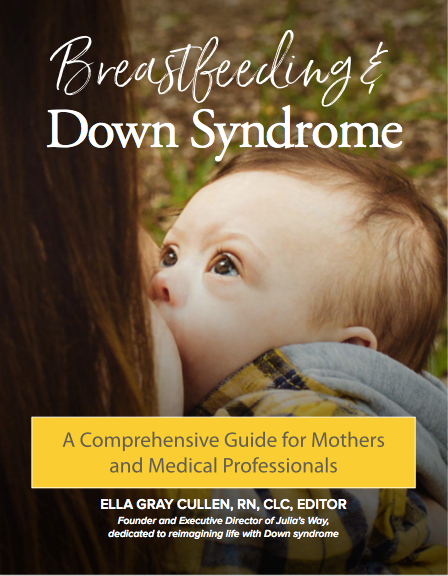Information Point: Breastfeeding and Down Syndrome Copy
Children with Down syndrome may have difficulty with breastfeeding because of generalized low tone, a weak suck, and increased fatigue while nursing. Newborn infants with Down syndrome are often less efficient in feeding than other infants. While increased fatigue for infants with Down syndrome may be the result of lower tone and a weaker suck, it is also possible that fatigue can be the result of a heart condition, and the other members of the medical team should be consulted in that case.
A lactation specialist can assist in working with the mother so that the baby learns to latch onto the breast and sustain feeding. Lactation specialists may often call in a feeding specialist (e.g., an occupational therapist or speech/language pathologist to consult) as well.
It is important that mothers of infants with Down syndrome who want to breastfeed be encouraged to do so. Breastfeeding provides certain advantages including:
- extra protection against infections and bowel problems which babies with Down Syndrome are more likely to develop,
- improved mouth and tongue coordination, and
- enhanced closeness between mother and baby.

However, it is also important that these children receive adequate nutrition, and supplemental feedings may be necessary in addition to breastfeeding.
For additional information and resources on breastfeeding and Down syndrome, you may download for free the book “Breastfeeding and Down Syndrome: A Comprehensive Guide for Mothers and Medical Professionals.”
